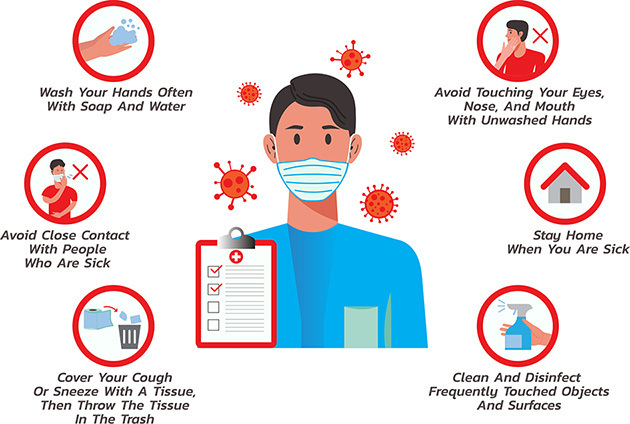What you need to know about Covid-19
- Covid-19 is a viral disease that is transmitted by airborne droplets while coughing, spitting, singing or talking. If the virus is smeared on a surface after sneezing or coughing it can survive there for 72 hours and other persons may come in contact with the virus.
- In approximately 90 – 95% of persons being infected there are no or just very light flu symptoms.
- Some people develop a real flu with fatigue, fever and a dry cough.
- Even fewer people will develop a dangerous pneumonia, especially when they suffer from chronic diseases putting a strain on the immune system.
- To prevent getting infected don´t get close to other people, keep a distance of two meters. Don´t shake hands or kiss for greetings or good byes.
- Keeping a distance will not work with other people in your household. Make sure that none of your household members gets closer to other people to prevent the disease from being carried into your home.
- If possible, try working from home, avoid public transport and don´t organize parties at your homes.
- Wash your hands regularly with soap for 20 seconds or use hand sanitizer. Soap kills the virus and is very effective if you don’t have other disinfectants.
- Protect your older and chronically ill family members, neighbors and friends. Help them with their shopping or other urgent matters so that they are not exposed to crowds of people.
- If you feel sick with a mild respiratory infection, please stay at home and keep a distance to your loved ones.
- Cough in your elbow so no droplets are dispersed and may be inhaled by other persons.
- If you feel very sick, try to find out if there is a hotline providing advice on where to go and present with your symptoms.
- If no information is provided go to your nearest health facility, they will advise you what to do.
- Try to keep informed about the epidemic outbreak in your country or country of residence and follow the recommendations from your Ministry of Health or government.
